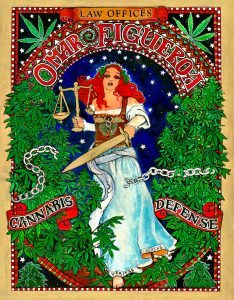Legislature consolidates MCRSA and AUMA into MAUCRSA

On Thursday June 15, the California Senate and Assembly passed two bills, SB-94 and AB-110, which are the state legislature’s versions of Governor Brown’s Trailer Bill. The Trailer Bill is the administration’s effort to reconcile the medical and adult use cannabis systems in California. Now that these bills have passed, Governor Brown has until July 1 to sign them into law, which he is expected to do. The law would then go into effect immediately once signed.
We contacted the Bureau of Medical Cannabis Regulation to ask what would happen next. Their official response was:
“The bureau will withdraw the proposed MCRSA regulations and propose a new set of regulations consistent with the changes in the law. However, public comments on the proposed MCRSA regulations are still very important. Many of the provisions in the MCRSA proposed regulations will carry over to the new regulations. Public comment from the MCRSA proposed regulations will provide information for the bureau to use when crafting any new regulations.”
The emergency rule-making process will most likely be used for the next round of proposed regulations.
Below are some of the main changes coming soon to California cannabis.
Name of the Law and Rebranding of Regulatory Agency
The new name for the combined medical and adult use cannabis regulatory systems is the “Medicinal and Adult Use Cannabis Regulation and Safety Act” (MAUCRSA–we think this would be pronounced MAO-KUR-SA) (BPC §26000). The Bureau of Medical Cannabis Regulation will be renamed the “Bureau of Cannabis Control” (BPC §26001(e)).
License Types and Combinations
The license types for medical and adult use cannabis operations will be the same. There will be no transporter or producing dispensary licenses. Licenses will be identified as medical or adult use with an “M” or “A,” respectively, except for testing laboratories which shall not be designated as either. The requirements for M-licenses and A-licenses shall be the same, unless otherwise specified (BPC §26050(b)). Regarding which combinations of licenses a person may hold, the law removes MCRSA’s limitation on holding licenses in more than two separate categories. Large cultivators, which will not be allowed until 2023, cannot hold distribution or testing licenses but can hold all other license types.
Definition of “Owner”
The new law eliminates the distinction between public and private companies; the threshold is 20% interest in the company to be an owner; and the CEO of a company (if applicable) ; and all members of the Board of Directors of a nonprofit (if applicable); and anyone who exercises direction, management or control of the company (if applicable) (BPC §26001(al)).
Delivery
Deliveries may only be made by a licensed retailer or microbusiness (BPC §26090). However, retailers are allowed to conduct business exclusively by delivery. Such a retailer must still have a licensed premises, but the premises may be closed to the public (BPC §26070). Deliveries includes the use of technology platforms that are either independently licensed or owned and controlled by another licensee (BPC §26001(p)).
Volatile Solvents
The definition of “volatile solvents” has been completely changed, and no longer includes references to specific compounds. Instead, a volatile chemical is defined by MAUCRSA as “a solvent that is or produces a flammable gas or vapor that, when present in the air in sufficient quantities, will create explosive or ignitable mixtures.” (HSC §11362.3(b)(3)).
Lab Testing
The bureau will issue testing laboratory licenses, but these licenses will not be designated as “M” or “A” (BPC §26050(b)). Holders of a testing laboratory license may not hold a license in any other category (BPC §26053(b)). Testing laboratories are responsible for obtaining samples and transporting them back to the laboratory
Distribution
Transportation of cannabis can only be done by licensed distributors (BPC §26070(a)(2)), but anyone, except testing laboratory license holders, can apply for a distributor license (BPC §26110).
No More Prohibition on ABC Licensees Holding Cannabis Licenses
MCRSA and AUMA prohibited a holder of an alcohol license from obtaining a license for commercial cannabis. The new legislation does away with that prohibition. Instead, the law would prohibit any cannabis licensee from serving alcoholic beverages or tobacco on the licensed premises (BPC §26054).
Special Events
Temporary event licenses that would allow on-site consumption may be available, if all participants are licensed and the local jurisdiction allows it (BPC §26200(e)).
